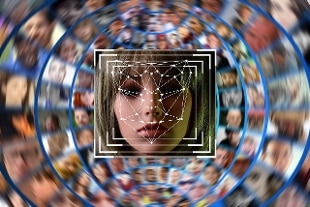- Artificial intelligence: Big Tech, institutions and the Vatican together for ethical technology
- London police will use face recognition live on the streets
- EU, the White Paper on artificial intelligence arrives: moratorium on facial recognition
- Artificial intelligence: Big Tech, institutions and the Vatican together for ethical technology
- Brad Smith, Microsoft president: artificial intelligence, challenge for the work of the future
- Artificial intelligence, challenges and opportunities
- Turing Prize awarded to three pioneers of artificial intelligence
Share
09 June 2020Ibm exits the face recognition market for unethical purposes and claims its opposition to the use of this technology for "mass surveillance, racial profiling, violation of freedoms and human rights". The CEO of the US tech multinational, Arvind Krishna, has made it known in a letter sent to the American Congress in which he also asks for a law for racial justice."We believe that the time has come to start a national dialogue on whether and how the technology for facial recognition should be used by law enforcement," wrote Krishna, who highlights the 'bias', prejudices at the origin of problems of facial recognition on ethnicity and gender found in systems generated by artificial intelligence.
The IBM CEO therefore urged Congress to engage in racial justice reforms, including the review of qualified immunity which protects law enforcement and prevents citizens from claiming damages if an agent violates their constitutional rights.
"Ibm firmly opposes and will not condone uses of any [facial recognition] technology, including facial recognition technology offered by other vendors, for mass surveillance, racial profiling, violations of basic human rights and freedoms, or any purpose which is not consistent with our values and Principles of Trust and Transparency, "Krishna said in the letter. "We believe now is the time to begin a national dialogue on whether and how facial recognition technology should be employed by domestic law enforcement agencies."
Krishna's letter emphasizes ethical issues related to the use of artificial intelligence, but underlines that the company intends to renounce the sale and research of this technology if in violation of its rules of trust and transparency.The ethics of AI
It is not just the 'Floyd effect' that triggers the debate. The killing of the African American in Minneapolis has reopened the discussion on Big Tech's sale of facial recognition technologies to the police, but ethical issues have long been under discussion worldwide.
Last February 28, in Rome, institutions and the Vatican signed, together with Microsoft and IBM, the agreement for ethical technology "Rome Call for AI Ethics", a document of the Pontifical Academy for Life , a formal commitment open to everyone's accession. sectors of society. At the presentation, the President of the European Parliament David Sassoli, the director general of the FAO, the Minister for Innovation Paola Pisano.
IBM's commitment: human-machine dialogue
On that occasion, John Kelly III, IBM's vice president, had declared that the company chose to say enough about the challenges between the human mind and computer, such as the checkered ones (the reference is at 11 May 1997, when the IBM's DeepBlue super computer beat in just 19 moves the greatest chess player in the world, Garry Kasparov). The goal today, explained the executive vice president, is "the collaboration between man and machine. We and our colleagues work hard in the agricultural, health, energy sectors, to bring the best human brains to work together and to reach the best decisions promptly. ".

